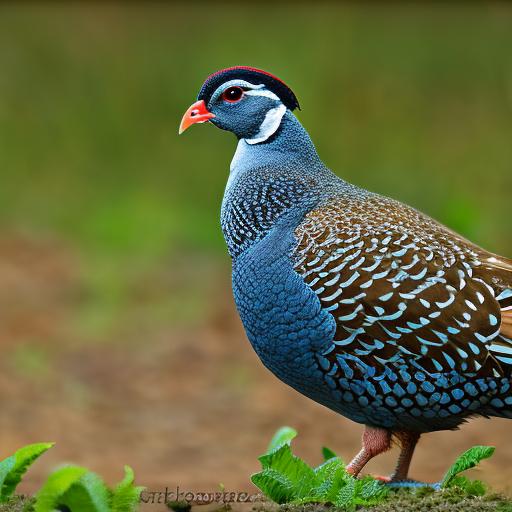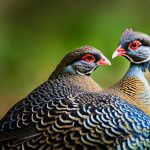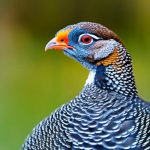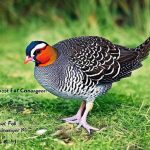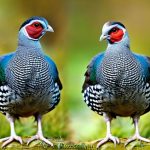Guinea fowl, also known as pintades, are a unique and fascinating addition to any farm or backyard. These birds are native to Africa but have been domesticated and are now found in many parts of the world. Guinea fowl are known for their distinctive appearance, with speckled feathers and a helmet-like bony structure on their heads. They are also valued for their pest control abilities, as they are voracious eaters of insects, ticks, and other pests. In addition to their practical benefits, guinea fowl are also popular for their flavorful meat and eggs.
Guinea fowl are social birds that thrive in small flocks, and they are known for their loud calls and alert nature, which makes them excellent watchdogs. They are relatively low-maintenance birds, making them a great choice for beginners or those looking to add diversity to their poultry flock. Guinea fowl are hardy and adaptable, able to withstand a wide range of climates and conditions. They are also known for their strong flying abilities, which allows them to roost in trees and escape from predators. Overall, guinea fowl are a valuable and interesting addition to any homestead or farm.
Key Takeaways
- Guinea fowl are hardy, low-maintenance birds that are great for pest control and as pets.
- A suitable habitat for guinea fowl should include a secure coop, ample space to roam, and protection from predators.
- Guinea fowl should be provided with a balanced diet of commercial feed, grains, and access to fresh water at all times.
- Shelter for guinea fowl should be well-ventilated, predator-proof, and include roosting space.
- Regular health check-ups, vaccinations, and access to a veterinarian are essential for maintaining the well-being of guinea fowl.
Setting Up a Suitable Habitat for Guinea Fowl
When setting up a habitat for guinea fowl, it’s important to provide them with a secure and spacious environment that meets their specific needs. Guinea fowl are active birds that require plenty of space to roam and forage, so a large outdoor area is essential. A fenced-in yard or pasture is ideal for keeping guinea fowl safe from predators and preventing them from wandering off. The fence should be at least 4 feet high to prevent them from flying over, as guinea fowl are strong flyers.
In addition to outdoor space, guinea fowl also need access to shelter to protect them from the elements and predators. A simple coop or shelter with roosting bars and nesting boxes will provide them with a safe place to rest and lay eggs. The coop should be well-ventilated and predator-proof, with sturdy walls and a secure door. Providing plenty of straw or bedding will help keep the guinea fowl warm and comfortable. It’s also important to provide them with access to fresh water and a balanced diet to keep them healthy and thriving.
Feeding and Watering Guinea Fowl
Guinea fowl are omnivorous birds that have a varied diet consisting of seeds, grains, insects, and small invertebrates. In the wild, they forage for food throughout the day, so it’s important to provide them with access to a diverse range of foods in captivity. A commercial game bird feed or poultry feed can serve as the base of their diet, supplemented with fresh fruits and vegetables, as well as access to insects and other protein sources. It’s important to provide them with access to grit or small stones, which they use to help grind up their food in their gizzards.
In addition to a balanced diet, guinea fowl also require access to clean, fresh water at all times. Water is essential for their overall health and well-being, as well as for egg production in hens. Providing water in shallow dishes or troughs will allow the guinea fowl to drink easily and keep themselves hydrated. It’s important to regularly clean and refill their water containers to prevent the buildup of bacteria or algae. By providing a nutritious diet and access to clean water, you can ensure that your guinea fowl remain healthy and happy.
Providing Shelter and Protection for Guinea Fowl
Guinea fowl require shelter that provides protection from predators and the elements. A sturdy coop or shelter is essential for keeping them safe at night and during inclement weather. The coop should be well-ventilated to prevent the buildup of moisture and ammonia, which can lead to respiratory issues in the birds. It should also be predator-proof, with secure walls, a strong roof, and a locking door to keep out predators such as foxes, raccoons, and birds of prey.
In addition to a secure coop, it’s important to provide the guinea fowl with access to a safe outdoor area where they can roam and forage during the day. A fenced-in yard or pasture will help keep them safe from predators and prevent them from wandering off. The fence should be at least 4 feet high to prevent them from flying over, as guinea fowl are strong flyers. Providing them with plenty of hiding spots, such as shrubs or brush piles, will also help them feel secure and avoid potential threats.
Health and Veterinary Care for Guinea Fowl
Guinea fowl are generally hardy birds that require minimal veterinary care if provided with a suitable environment and diet. However, it’s important to monitor their health regularly and be prepared to address any issues that may arise. Regularly inspecting the birds for signs of illness or injury will allow you to catch any problems early on. Common health issues in guinea fowl include respiratory infections, parasites, and injuries from predators or accidents.
In addition to regular health checks, it’s important to provide the guinea fowl with access to a clean and dry environment to prevent the buildup of bacteria and mold that can lead to respiratory issues. Providing them with a balanced diet that meets their nutritional needs will also help support their overall health and immune system. If you notice any signs of illness or injury in your guinea fowl, it’s important to consult with a veterinarian who has experience working with poultry. They can provide guidance on treatment options and help you develop a plan for maintaining the health of your flock.
Dealing with Noise and Behavior of Guinea Fowl
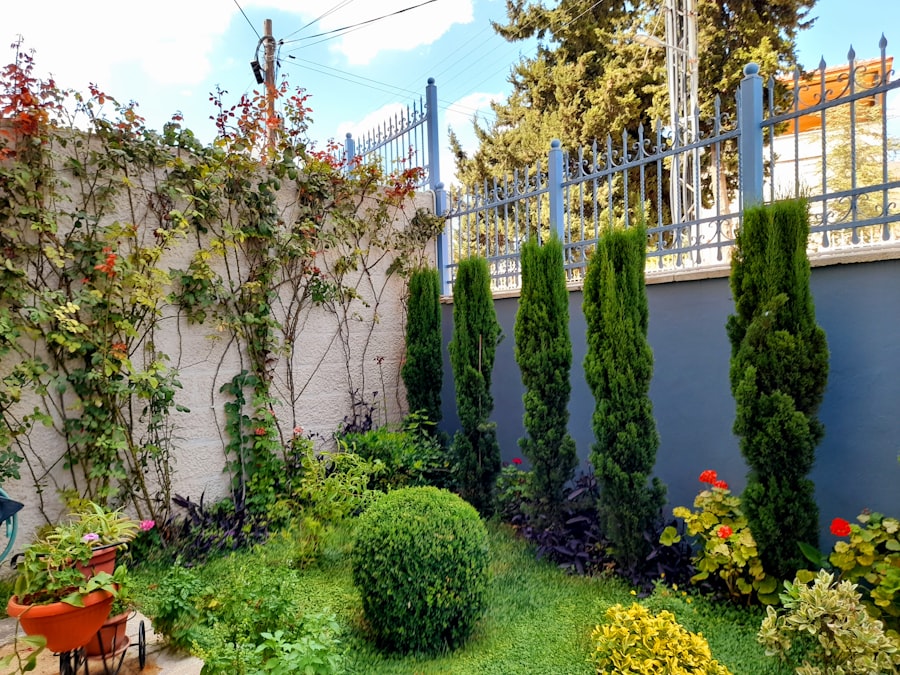
Guinea fowl are known for their loud calls and alert nature, which can be both endearing and challenging for their owners. Their vocalizations serve as an effective alarm system, alerting you to potential threats or disturbances on your property. However, their calls can also be disruptive, especially in urban or suburban environments where noise ordinances may be in place. It’s important to consider the potential impact of guinea fowl noise on your neighbors before bringing them into your yard.
In addition to their vocalizations, guinea fowl are active birds that enjoy roaming and foraging throughout the day. They have a strong instinct to explore their surroundings and can be quite curious and independent. Providing them with plenty of space to roam and access to interesting environments will help keep them engaged and prevent boredom-related behaviors such as feather picking or aggression. It’s also important to provide them with plenty of hiding spots and sheltered areas where they can retreat if they feel threatened.
Tips for Integrating Guinea Fowl into Your Yard
Integrating guinea fowl into your yard can be a rewarding experience, but it’s important to take some key factors into consideration. If you already have other poultry or livestock on your property, it’s important to introduce the guinea fowl gradually and monitor their interactions closely. Guinea fowl can be territorial and may exhibit aggressive behaviors towards other birds, so it’s important to provide plenty of space and resources for all of your animals.
It’s also important to consider the potential impact of guinea fowl on your garden or landscaping. Guinea fowl are avid foragers that enjoy eating insects, seeds, and small plants. While this can be beneficial for pest control, it’s important to protect any delicate plants or landscaping features that you want to preserve. Providing the guinea fowl with plenty of alternative foraging opportunities will help redirect their attention away from your garden.
In conclusion, guinea fowl are unique and valuable additions to any farm or backyard. By providing them with a suitable habitat, balanced diet, and proper care, you can ensure that they thrive and contribute to your property in many ways. With some careful planning and consideration of their specific needs, you can enjoy the many benefits of keeping guinea fowl while minimizing any potential challenges.
If you’re considering keeping guinea fowl in your yard, you may also be interested in creating the perfect coop for them to thrive. Check out this insightful article on “The Chicken Coop Country Diner” at PoultryWizard. It offers valuable tips and ideas for designing a comfortable and functional coop that will cater to the needs of your guinea fowl.
FAQs
What are guinea fowl?
Guinea fowl are a type of bird that are native to Africa. They are known for their distinctive spotted feathers and loud, chattering calls.
Why would someone want to keep guinea fowl in their yard?
Guinea fowl are often kept for their pest control abilities, as they are known to eat insects, ticks, and other pests. They can also be kept for their meat and eggs.
What do guinea fowl need in their yard?
Guinea fowl need a secure and spacious yard with plenty of room to roam. They also need access to fresh water, shelter, and a balanced diet.
How do you keep guinea fowl safe from predators?
To keep guinea fowl safe from predators, it’s important to provide them with a secure coop or shelter at night. Additionally, keeping them in a fenced yard and providing them with plenty of hiding spots can help protect them from predators.
What do guinea fowl eat?
Guinea fowl are omnivores and eat a variety of foods, including insects, seeds, grains, and vegetation. It’s important to provide them with a balanced diet to keep them healthy.
Are guinea fowl noisy?
Yes, guinea fowl are known for their loud, chattering calls. They can be quite noisy, especially when they feel threatened or are trying to communicate with each other.
Can guinea fowl be kept with other animals?
Guinea fowl can be kept with other animals, but it’s important to introduce them carefully and monitor their interactions. They may not get along with all types of animals, so it’s best to introduce them slowly and watch for any signs of aggression.
Meet Walter, the feathered-friend fanatic of Florida! Nestled in the sunshine state, Walter struts through life with his feathered companions, clucking his way to happiness. With a coop that’s fancier than a five-star hotel, he’s the Don Juan of the chicken world. When he’s not teaching his hens to do the cha-cha, you’ll find him in a heated debate with his prized rooster, Sir Clucks-a-Lot. Walter’s poultry passion is no yolk; he’s the sunny-side-up guy you never knew you needed in your flock of friends!

